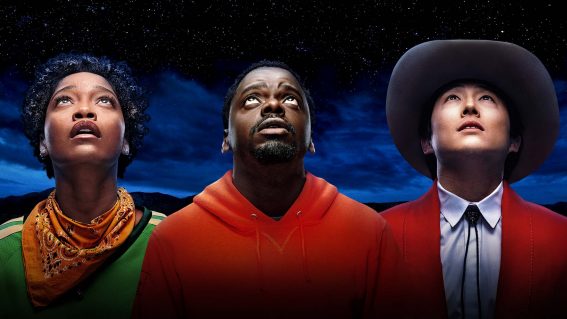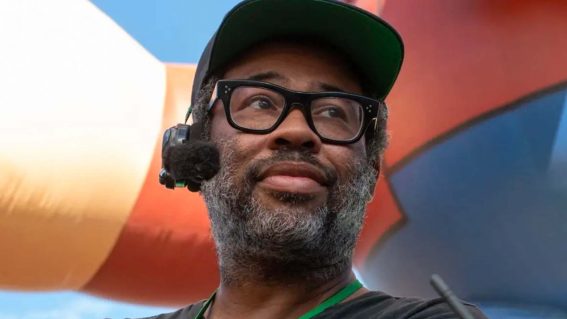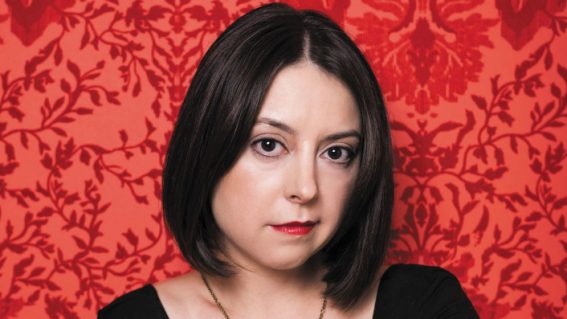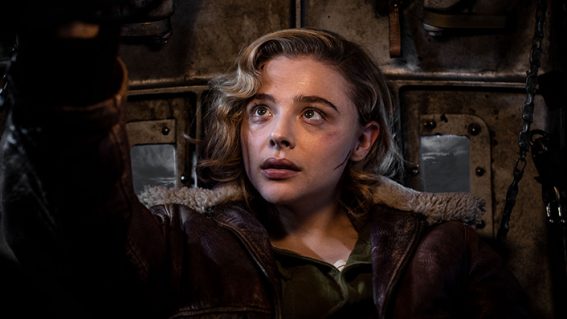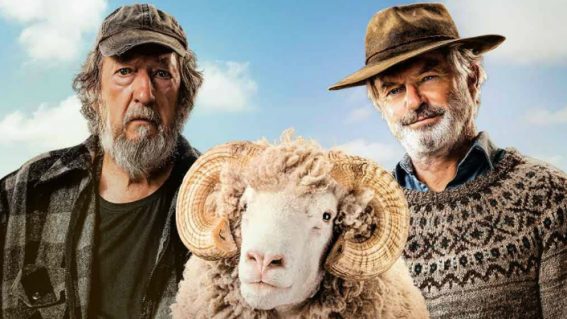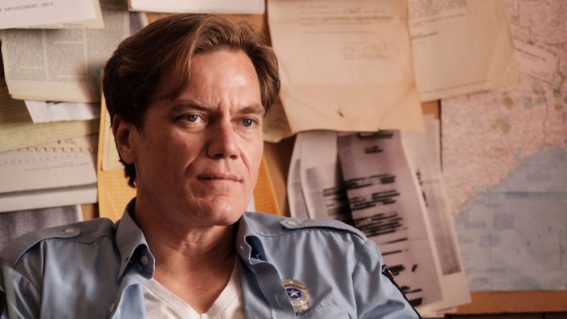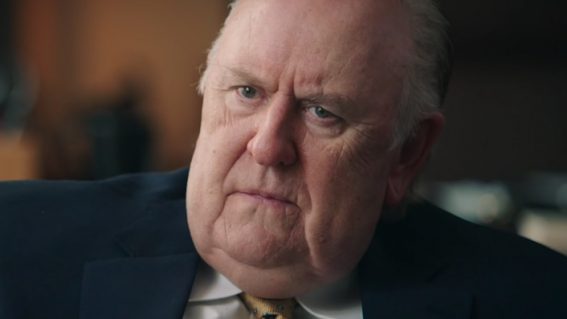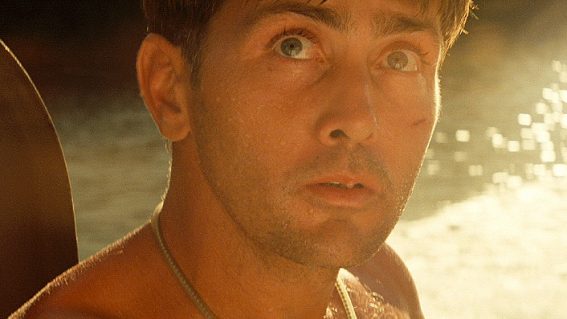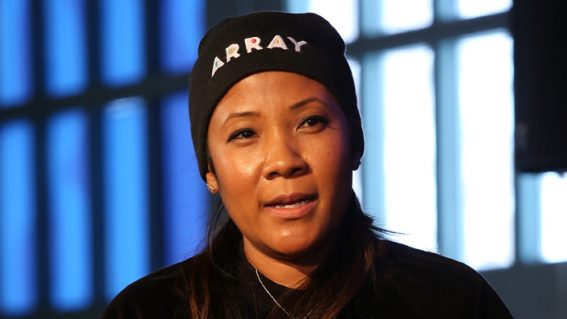“Man, will anyone ever go to this movie?” Jackie van Beek on The Breaker Upperers
“Why is my flatmate not in the movie more?” and other Qs
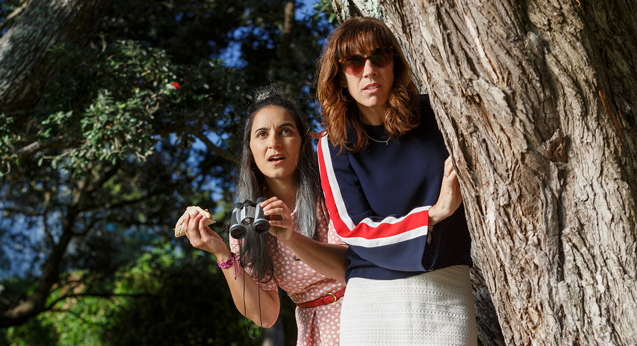
After a warmly-received theatrical run on both sides of the Tasman earlier this year—Flicks’ Katie Parker called it “a rare and riotous glimpse at what the women of the New Zealand comedy scene are capable of” in her four-star review—Kiwi comedy The Breaker Upperers is now available to own on Blu-ray and DVD.
We chatted to co-director/co-writer Jackie van Beek, who stars alongside Madeleine Sami, about her film as it enters its new lease of life in people’s living rooms.
Be aware: In the unlikely event you’re reading this and still haven’t seen the film, our interview contains the odd spoiler.
FLICKS: Do you look back fondly on the time when you were just starting to show the film to people?
JACKIE VAN BEEK: Our world premiere was in Austin, Texas at South by Southwest, and that was really exciting for us. It was a little bit strange to be premiering in a town over the other side of the world—and, of course, we weren’t sure whether we’d made something that would translate to Americans. And so I remember sitting in the cinema with our beer and our chips and the lights going down. And Madeleine and I weren’t sure that people would get our kind of Kiwi humour. But they did. And afterwards, the most common thing people said to us was, “We loved it. That was Kiwi humour. That was Kiwi comedy.”
What was so heartening for us was that the audiences at that festival were able to identify Kiwi humour because they’re just so much more exposed to it now with Taika and Jemaine and Bret doing Flight of the Conchords, as well as Rhys Darby. And so it felt really nice because the old conversations when I traveled over to the States would be, “Ah, Lord of the Rings,” and, “We can’t really understand your accents.” But now it feels like something that people are really excited about, so that makes Madeleine and I very excited for other New Zealand practitioners making all their cool stuff.
That’s a very recent definition of NZ comedy, but it all makes sense to us as a lineage here, obviously.
Well, that’s right, because we’ve got a huge history of comedy here in New Zealand that we’re all very familiar with, but what I realised when I was over in the States at the premiere was we were talking to people who go to film festivals, so it’s a small kind of targeted elite there. In fact, we were talking to film geeks. They were referring to things like Lord of the Rings, of course, and now they’re referring to things like Flight of the Conchords, Rhys Darby, Taika’s films.
But what also surprised me, of course, was that all of the film geeks know Hunt for the Wilderpeople and What We Do in the Shadows and Flight of the Conchords. But the mainstream audience hadn’t heard of any of those things. What they had heard of was Thor. So a lot of people just walking down the street were like, “Ah, New Zealand comedy, that’s, yeah, Thor.” And so I do think it’s hugely exciting that Taika was able to bring Kiwi comedy into the mainstream with that huge blockbuster.
And then, of course, there are all the film geeks who know all about Flight of the Conchords and Taika’s progression through all these indie films made in New Zealand. I would have thought everyone would have heard of Hunt for the Wilderpeople, but it’s still kind of a film geek’s film.
I guess in a way, like with Thor: Ragnarok, there’s a conventional narrative element to The BreakerUpperers. Do you think that helps an international audience be comfortable with the Kiwi-isms?
Yeah. The Breaker Upperers is a high-concept film with the premise “two women that start a business breaking up couples for cash”. So it’s a high-concept film and we settled on the buddy comedy genre. And so it was great for Madeleine and I to know that there is already a well-known genre as the buddy comedy that people will be able to relate to. But then within that genre, we really wanted to kind of turn it on its head in some ways.
I think Madeleine dubbed it a “wo-mance,” rather than a bromance. We’ve got two women, which is becoming more and more common, thankfully. Madeleine and I have been reading a lot of scripts that are being written in the States at the moment. There are a lot of female buddy comedies coming through which is really exciting. So I think yes, in answer to your question. I think the genre was familiar. So even though the accents were still a little bit weird and that we all look a little bit kind of exciting and diverse, I think knowing that genre would certainly help with broad appeal.
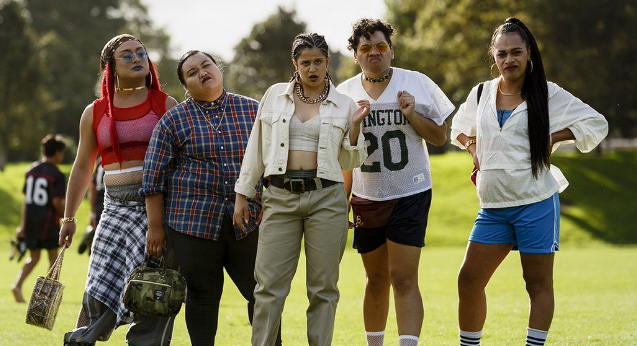
How scary or nerve-wracking was it getting ready to open a film in New Zealand that unashamedly had high commercial aspirations?
We felt pretty relaxed opening our film at South by Southwest because we figured if the audience didn’t get our film over there it’s because they were American. We were a lot more nervous when we opened our film here in New Zealand as we’d really made this film for New Zealanders. And when you have your friends and your family and your peers and, yeah, New Zealand locals, going to sit in the cinema, of course, they’re going to weigh in with their opinions. It was very nerve-wracking for us. But we were excited about it.
The film did a lot better at the box office than Madeleine and I ever dared to hope. For us, being the filmmakers, we’re like, “Ah, man, will anyone ever go to this movie?” But New Zealand and Australia, actually, were hugely supportive in turning up to the cinema to watch the film. And in terms of making a broad comedy, we boldly kind of set out to make a comedy that appealed to all types of different people, but to make it in our own unique original way.
But we did feel confident in putting a film like that out, because we were working so closely with Taika and we’ve worked with him on a lot of films to bigger or smaller degrees. But we did feel confident that people really enjoyed What We Do in the Shadows, Hunt for the Wilderpeople, Boy, of course, so we did feel like we were creating this film in the same realm. It kind of was the same creative group, really. So we did feel like there would be an audience for it.
And people love a comedy, you know? They just love a comedy. And we tried to make it bright and colorful and fun and warm and heartfelt. We didn’t want to make something really confronting to people, but we did want to slip in a few of our own messages. It was very important for Madeleine and I that the central relationship was the friendship between Mel and Jen. It was very important for us that we started single, and that we both ended single. We’re not wanting to send out messages of you need a double church wedding in order to really fulfill your dreams.
The film is more about navigating your own path towards happiness. And we wanted the audience to leave our film feeling kind of liberated to do that, to make their own choices and not to be under the pressure to do the conventional thing.
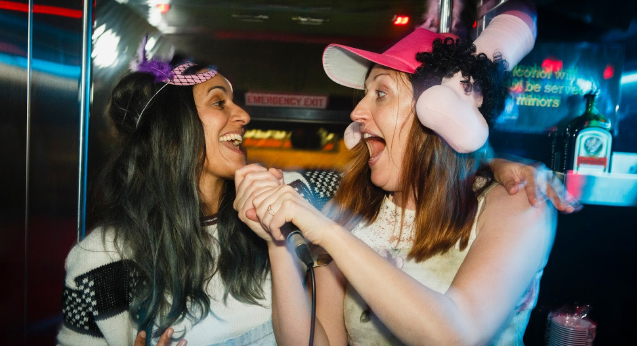
I reckon that happened pretty successfully, and as I recall, audiences also left feeling energised and sometimes a little bit… pissed.
We do encourage people to drink alcohol before, during, and after our movie. But then also a lot of young people go along, and they drink their Coke, and they have their popcorn, and they eat their ice creams very, very happy as well. We have been very heartened that the comment we’ve received so often after we’ve been speaking to people after they’ve come out of the cinema has been: “I felt like that film was about me and the people that I know.” So people are feeling like it’s a very inclusive film which makes us so happy that a lot of different people are represented up on screen in a very positive kind of way.
As you open a film in cinemas, it’s a temporary phenomenon, right? You’re trying to get people along and there’s a limited time when people can do so. But now your film lives forever and people can watch it forever. Do you feel any differently about it? That, rather than trying to get people to see it once or twice or three times, it’s something that they will pore over and re-watch?
Madeleine and I feel really excited that people are going to be able to watch The Breaker Upperers in the comfort of their own homes, because we were very involved in the cinema releases in New Zealand and Australia. It was a very kind of hands-on process for us. We were going into cinemas. We were talking to people. We were doing Q&A’s. We were in Australia, traveling around all the different centers.
And so now it feels like quite a different phase, like we really are just kind of putting it out there to the world. And it’s so exciting for us that people can watch it and re-watch it and talk over it. When we were in some of those screenings, one thing we loved is that people were so loud. People would talk about the movie as they’re watching it and laugh. And it was a really quite noisy experience that we really enjoyed.
And I think being able to watch the film in your own home is only going to enhance that. I have no problem with this sort of film that people stop it and they go back a bit or they may have to replay a bit because someone wants to go and cook dinner and then they come back. I think it is that kind of film that can be replayed and rewatched. Hopefully, people watch their favorite bits over and over.
I mean, it feels different to making my first feature film [The Inland Road] which was quite a delicate, indie drama. And the thought of people just talking over the whole thing and walking in and out of the room would have felt quite confronting to me [laughs], but with this film it’s such a robust, little funny beast, that I think it will survive people talking over it and chatting and arguing about the different things. And I look forward to that.
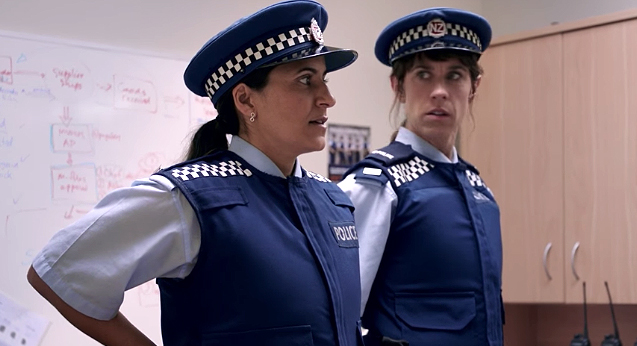
If you, when you bought your copy of The Breaker Upperers on DVD, got a pamphlet with instructions on how to watch this film, what would the first steps be?
I guess we’d encourage to probably watch it with your family or a group of friends. Try and cram as many people onto your couch as possible. Have a lot of yummy food and delicious drinks on hand. Don’t be angry with your family or friends if they’re getting up and walking in and out because that’s something that should be embraced with the watching of this film. Don’t be afraid to just pick up the remote and then just watch your favorite bits over and over again. Then you can pause it, then come back to your watching. I don’t think it needs to be a delicate experience, the viewing of this film. I think it can be quite a rowdy engagement, hopefully, a very colourful and heart-warming experience.
Before we wrap up, a question that probably applies to quite a few people because the sheer volume of folks that pop up in this film: “Why is my flatmate not in the movie more?”
Who’s your flatmate [laughs]?
Kura Forrester. She’s awesome.
Ah, yes, she should be in the film more. I have just wrapped an improvised TV series shoot with her and by God, she was funny. Yeah, she was staring at me wearing a nude suit and a horse’s head on Sunday.
You crammed as many people into tiny moments of the film as possible. Why?
Why? Well, it is a film with a huge amount of characters. Often characters will just play for one scene, or a couple of scenes, or even just one line or two lines, as we track the journey of Jen and Mel. And so, of course, when a character only has one line or two lines, normally your producers would suggest you go to a talent agency and you find some more established people. But for us, we know so many amazing comedians and actors here in New Zealand that we just asked our friends if they wouldn’t mind coming in and just doing one line. Guy Montgomery is the waiter whose only line is, “the crayfish orgy,” but it always gets a laugh, though.
I mean, for instance, Nic Sampson has only got one line. He’s only got one word, and he’s one of our wonderful kind of comedians in New Zealand. He only has one word and it is, “What?” But you know what? It made the trailer. It was that good. His performance of the word “what” was so sublime that it is the thing that is advertising our film.
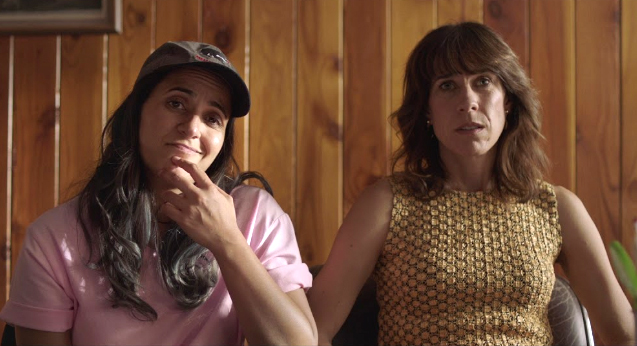
Do you feel you’ve possibly downgraded supporting comedy parts? By moving people down from the “funny friend” to literally just saying one word?
I mean, [laughs], we were a little bit worried, we were a little bit anxious, about asking some of New Zealand’s top comedians just to come in for one word. But I’m a big believer in “if you don’t ask, you don’t get”. They could have just told us to piss off. There was a lot of excitement around the production of this film. New Zealand is so small that they’re all our friends anyway. I mean, for one of the opening montages, we literally kind of scheduled it so late that we had to round up all our friends and say, “Are you available for one hour tomorrow?” And thankfully people said yes and they just came and we got the most brilliant montage. Everyone was just improvising sitting behind our Breaker Upperers desk, just coming up with great jokes. So we were very lucky, yeah, very lucky.






